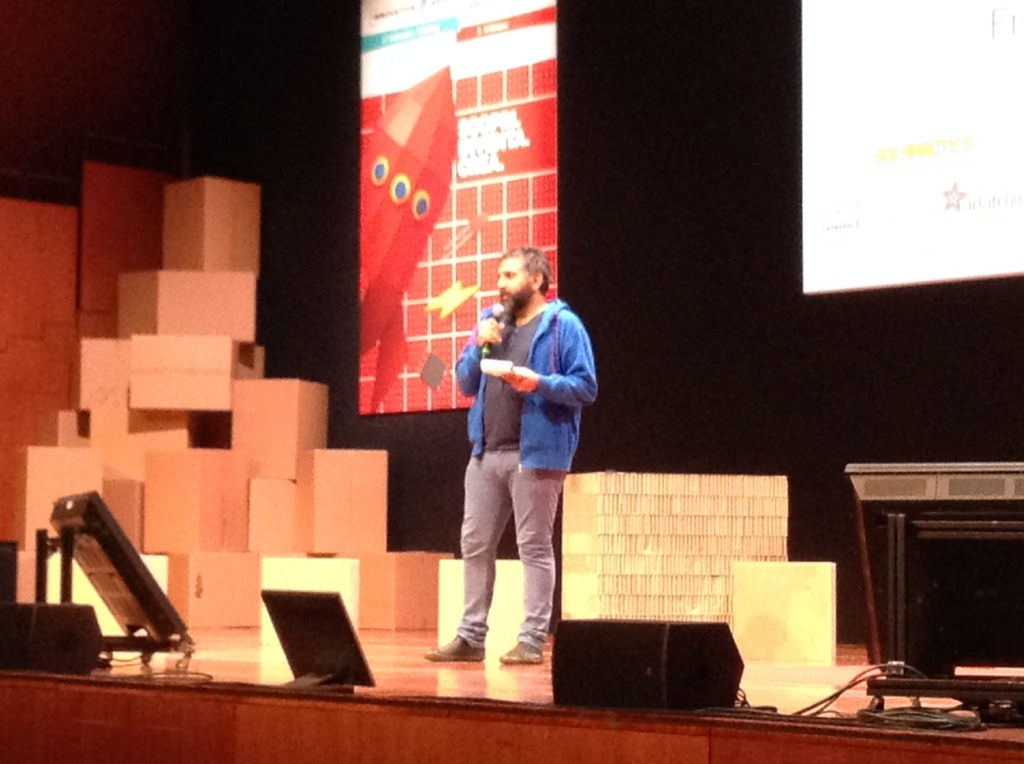Here, our recap of Web Summit Day 2, the vast tech conference that took place at Dublin, Ireland in early November. As in the first day, we chose to stayed focused on Machine stage, where world class speakers talked about projects into areas that catch our attention: maker culture, 3D printing, open hardware, DIY, crowdfunding, Internet of Things, and many others.
The long tail of making
Since its foundation in 2007, 3D printing company Shapeways is aimed to make 3D printing accessible for everyone. During his enthusiastic talk, Peter Weijmarshausen, CEO and co-founder of Shapeways, showed us the expanding possibilities of 3D printing, currently being possible to design and print, for instance, custom phone cases, model trains, jewellery, board games, etc. As he put it, “only your imagination is your limit”.
Shapeways provides services and tools to the members of its community to create and print their own objects, even for those without prior knowledge on 3D technologies. On the other hand, Shapeways is also a marketplace where makers and designers can get profit by selling their own designs.
Weijmarshausen also talked about the recent partnership agreement with Hasbro, Inc, to produce 3D printed models of characters of My Little Pony. That could open a path to further agreements with other licensed media companies as both, companies and their fans, benefit. It helps fans, because they can choose and decide about their most beloved licensed products; and it benefits companies as well, saving huge amounts of money in marketing and testing campaigns. Though “we still need something like Spotify for 3D printing”, he finished assuring that “in years to come, we are going to see the profound impact of these technologies”.

Continue reading “Dublin Web Summit 2014 Day 2: Machine stage”





